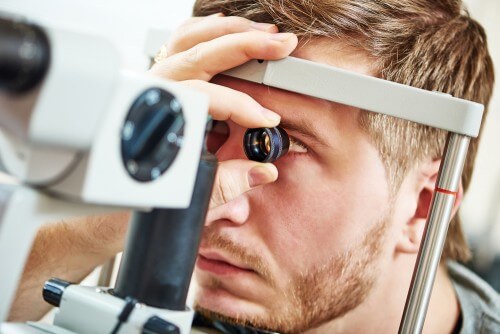Algae were previously discovered to be effective in the treatment of a rare eye disease, but in light of ecological changes that have occurred in the last decade, the algae stopped producing the substance in sufficient quantities naturally. The new development will allow the production of the active substance in the required quality, quantity and concentrations, resulting in the continuation of continuous and effective treatment

Researchers from the Blavatnik Drug Development Institute at Tel Aviv University and the Sheba Medical Center are developing a drug for the incurable genetic eye disease retinitis pigmentosa, which causes retinal degeneration and blindness at a young age. A clinical trial carried out about a decade ago revealed that a natural food supplement produced from algae improved the vision of about a third of the patients, but over time it became clear that the effectiveness of the treatment is unstable due to ecological changes in the composition of the algae that grows in the sea, and is affected by changing temperatures and currents - and the patients were once again left unanswered.
The researchers who specialize in the development of drugs for rare diseases, joined the task, with the aim of producing the active substance in algae under laboratory conditions -9-Are you there-β-carotene as a basis for the development of an effective and reliable synthetic medicine, which can be produced in the desired quality, quantity and concentrations. The leaders of the research are: Prof. Ehud Gazit, Dr. Elvira Haimov and Dr. Ludmila Bozhansky from the Center for Drug Development at Tel Aviv University, and Dr. Yigal Rottenstreich and Yifat Sher from the Sheba Medical Center.
The researchers explain that retinitis pigmentosa is a genetic disease, caused by mutations that prevent the absorption of beta-carotene in the body - a pigment essential for vision, found in orange vegetables such as carrots. As a result, a degenerative process of the retina occurs, the patient's field of vision becomes smaller and smaller, until total and inevitable blindness, mostly at a young age - from childhood to the age of 30. Currently, about 3000-2000 retinitis pigmentosa patients live in Israel.
About a decade ago, a clinical trial was conducted in which 29 retinitis pigmentosa patients were treated with a natural food supplement produced from algae containing the active ingredient C9 beta-carotene - a version of beta-carotene that is absorbed by the patients' bodies despite the mutation. The treatment improved the condition of about a third of the patients in key parameters - night vision, field of vision and electrical activity in the retina.
Dr. Elvira Chaimov, Head of the Medicinal Chemistry Unit at the Center for Drug Development: "Due to changes in the composition of algae that grows in the sea and is affected by the changing conditions in nature, we realized that the answer to the problem is the production of a reliable and stable synthetic drug, whose content we can control. The main challenge in the development process was the fact that the active ingredient 9-Are you there-β-carotene is chemically unstable, and breaks down easily in the presence of light and oxygen. This situation makes production processes very difficult, and the shelf life of the material is also very short. To solve the problem we developed conservation methods, mainly by adding stabilizing substances. Today we are in the upscaling phase - the purpose of which is to enable the production of the material in larger quantities."
Dr. Ludmila Buzhansky, director of the center: "The medicinal substance we produced was successfully tested on retinal nerve cell cultures, and now we are seeking to produce a sufficient amount of substance to advance to the next steps: further experiments in the laboratory and on mice and later clinical trials on humans. Since this is a material that has previously been proven to be effective and safe in its natural form, we are very optimistic about the potential effectiveness of the synthetic material we produce. We believe that it will serve as a basis for the development of an effective drug that will provide an answer to a significant percentage of patients with retinitis pigmentosa, and save their eyesight."
More of the topic in Hayadan:

2 תגובות
I live in NY and want to know if there is a way to participate in the clinical trials, I am 57 years old and just got diagnosed with RP Usher 24A
Has nature stopped producing researchers?
material material?
Did anyone read the title before posting?